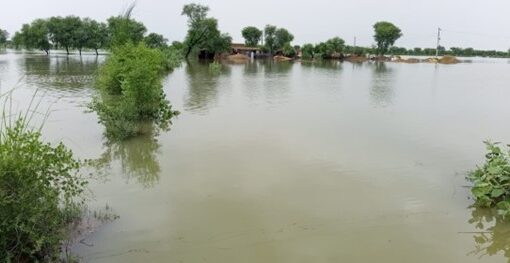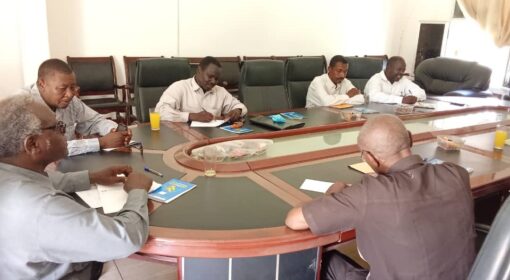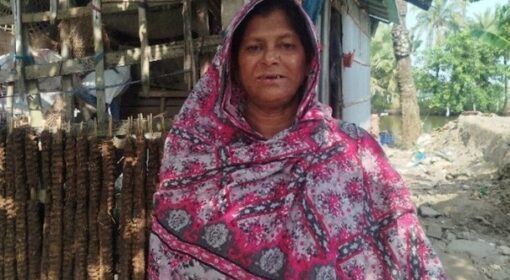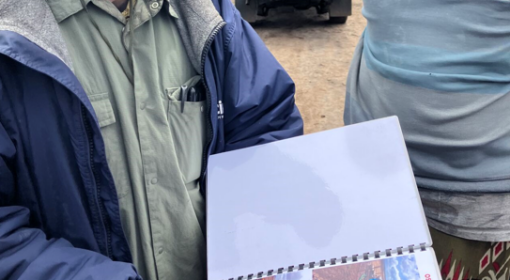Author: Friendship, as part of the Reversing the Flow program.
This blog is part of a dossier on locally-led adaptation, featuring insights and lessons from the Reversing the Flow (RtF) program. RtF empowers communities in Bangladesh, Burkina Faso, Ethiopia, Kenya, and Sudan to build climate resilience through direct funding and a community-driven, landscape approach.
A Case Story from a Riverine Char Island of Brahmaputra in Bangladesh
Background
Durgapur, a riverine char island in Shaheber Alga union of Ulipur Upazila in Kurigram district, has long been a regular victim of monsoon floods. This year, following several days of continuous heavy rainfall, several northern districts in Bangladesh, including Kurigram, have been heavily affected by floods. The third spell of devastating floods has battered northeastern regions, affecting millions of people as major rivers overflow due to torrential rains triggered by an active monsoon, according to a report by the Bangladesh Sangbad Sangstha (BSS, the National News Agency of Bangladesh) published on July 4, 2024.
A Proactive Community Response
Despite the challenges, Durgapur village is better informed and well-prepared to face the flood this year. The Char Durgapur Community Implementation Committee (CIC) reflects the community’s commitment and confidence: “We are looking forward to providing the required support to flood victims.”
The CIC, formed under the Reversing the Flow Approach (RtF), has inspired the community to provide humanitarian responses using their own resources. The group sat together to discuss risks and vulnerabilities, mapping out the resources available and identifying needed external support to make the community more resilient.
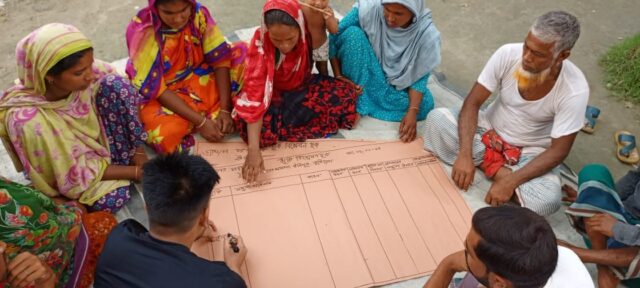

A Village Doctor’s Leadership
Rahim Badsha (28), a Palli Chikitshak (village doctor) by profession, was born and raised on the Char Island. Monsoon floods, loss and damages, erosions and shifting to places are not new to him, but this year he is excited about facing the flood due to the community’s proactive approach. As a member of the recently formed CIC, Rahim participated in the disaster risk assessment process, jointly identifying vulnerabilities and discussing available resources and additional needs.
The community, involving all relevant stakeholders, including local union parishad representatives and opinion leaders, prepared their own plan and approach for facing the flood. One of the priorities identified was the provision of a dedicated boat for rescue operations during floods and river erosion.
Voluntarily, Rahim promised to dedicate his own boat for rescue operations and prepared it before the flood hit. As the village was impacted early by the monsoon flood this year, Rahim, with assistance from other community members, began rescue work. His boat has already rescued six families, along with their valuable household assets, 13 cows, and 16 buffalos. These families have been safely relocated to Durgapur Bazar without any charge.
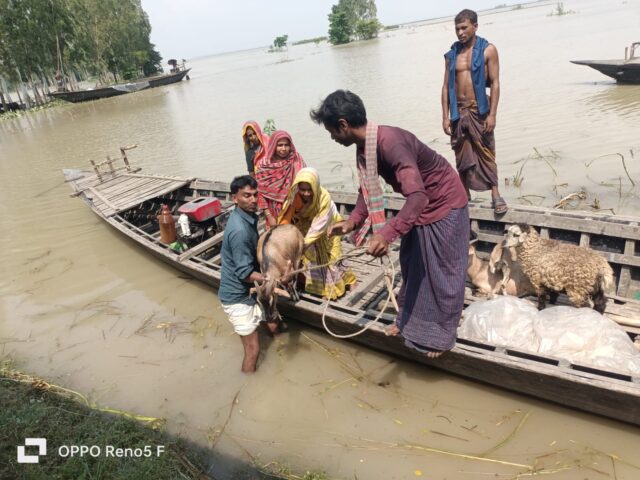
A Model for Locally Led Disaster Response
Rahim and the CIC group are committed to providing further essential support to other flood victims this season and beyond. Their initiative is a unique example of locally led disaster response that could inspire other communities facing similar situations.
Durgapur’s story highlights the power of community-driven initiatives and the importance of local resource mobilization and planning in disaster resilience. By leveraging local knowledge and resources, communities can significantly improve their capacity to respond to and recover from natural disasters, setting an example for others to follow.
Conclusion
The proactive and coordinated efforts of Durgapur village, spearheaded by individuals like Rahim Badsha and supported by the CIC, demonstrate a commendable approach to disaster management and resilience building. This case story underscores the significance of community-led actions and the potential for such initiatives to inspire broader change in disaster response strategies across flood-prone regions. Facilitative role of Friendship as a hub of the Reversing the Flow (RtF) approach with financial cooperation of the Netherlands Enterprise Agency (RVO) could certainly be of better impact for resilience building of the communities living in the remotest climate vulnerable areas in Bangladesh and other parts of the world.
